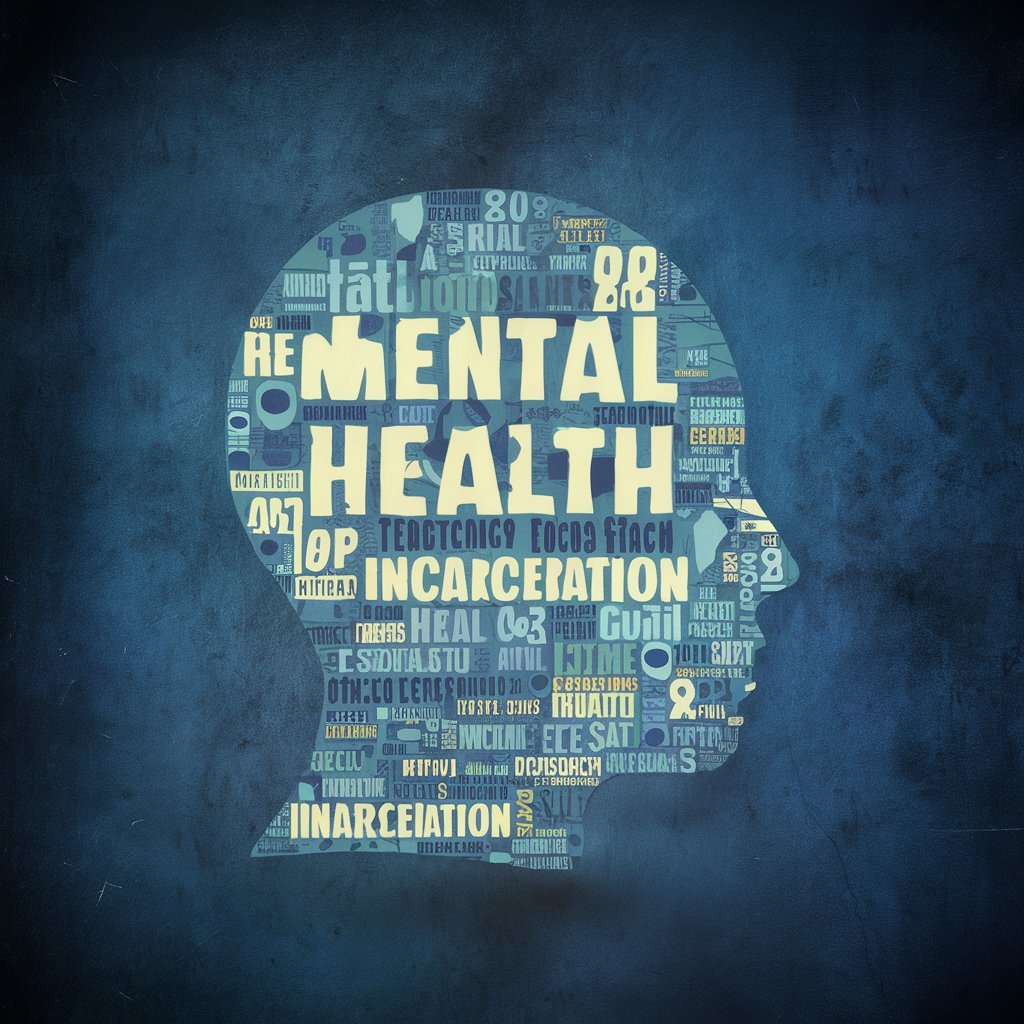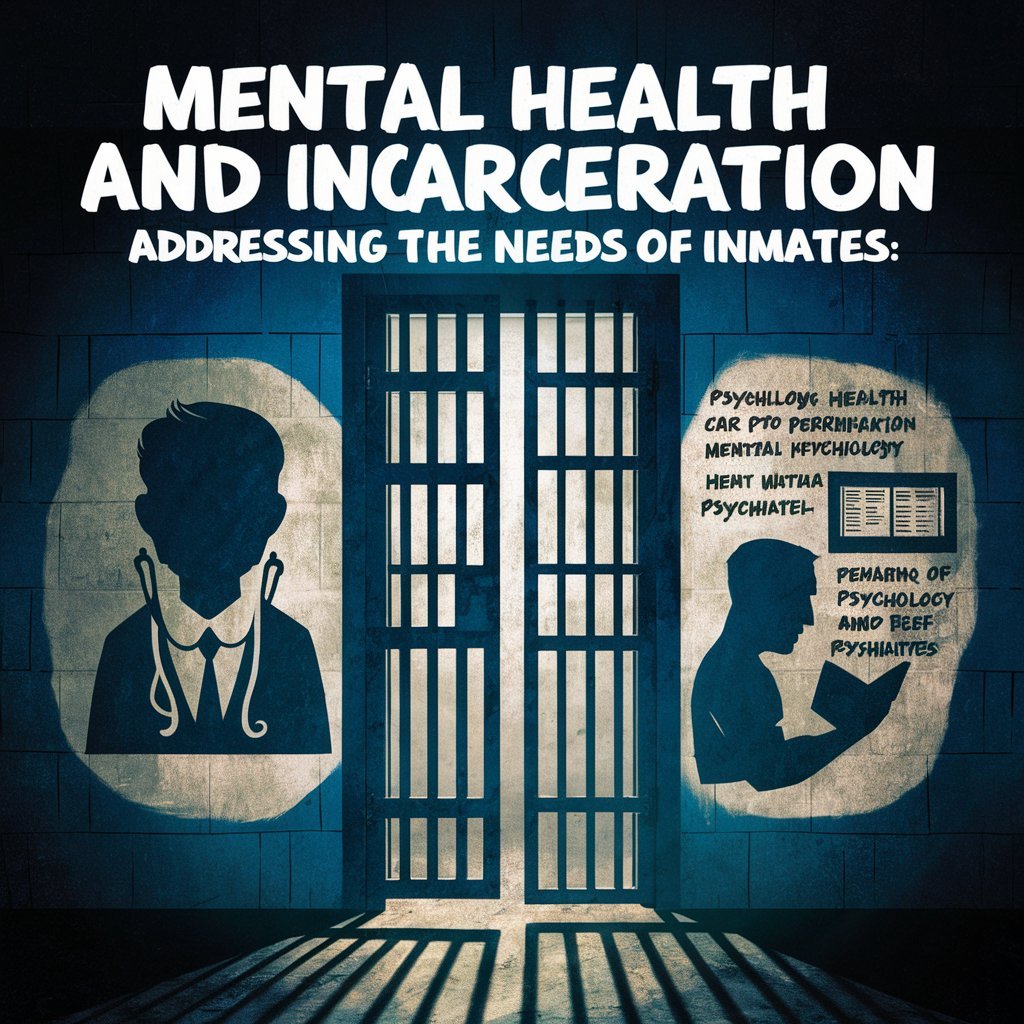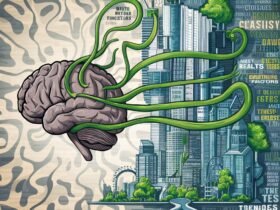Mental Health and Incarceration: Addressing the Needs of Inmates
Hey there, my young and curious friends! It’s your mental health buddy, Nita Sharda, here to talk about a topic that’s really important but not always easy to discuss – mental health and incarceration, and how we can address the needs of inmates who may be struggling.
Now, I know that the idea of prison or jail can be scary or confusing, especially when we’re young. We may have seen movies or TV shows that make it seem like a dangerous or hopeless place.
But the truth is, many people who are incarcerated are also struggling with mental health issues, and they deserve our compassion and support just like anyone else.
So today, we’re going to explore the intersection of mental health and incarceration, and think about how we can create a more just and caring world for all.

The Mental Health Crisis in Prisons and Jails
First, let’s talk about the scope of the problem. Did you know that people who are incarcerated are much more likely to have a mental health condition than the general population?
In fact, some studies estimate that as many as half of all people in prison or jail have a mental health diagnosis, such as depression, anxiety, bipolar disorder, or post-traumatic stress disorder (PTSD).
There are a few reasons why mental health issues are so common among incarcerated people:
Trauma and Adverse Life Experiences
Many people who end up in prison or jail have experienced significant trauma or adversity in their lives, such as:
- Childhood abuse or neglect
- Poverty and homelessness
- Discrimination and oppression
- Violence and victimization
These experiences can take a toll on mental health and make it harder for people to cope with the challenges of life.
Lack of Access to Mental Health Care
Another reason mental health issues are so common among incarcerated people is that many of them have not had access to proper mental health care and support.
This might be because of:
- Lack of insurance or financial resources
- Stigma or fear of seeking help
- Lack of available mental health services in their community
Without treatment and support, mental health conditions can worsen over time and make it harder for people to function in their daily lives.
Stress and Trauma of Incarceration
Finally, the experience of being incarcerated itself can be incredibly stressful and traumatic, and can worsen existing mental health issues or even cause new ones to develop.
Some of the challenges of incarceration that can impact mental health include:
- Isolation and separation from loved ones
- Lack of privacy and personal space
- Exposure to violence or abuse
- Lack of control over daily life and routine
- Uncertainty about the future
All of these factors can make it incredibly difficult for incarcerated people to maintain their mental health and well-being.
Addressing the Needs of Incarcerated People
So, what can we do to address the mental health needs of incarcerated people and create a more just and compassionate system? Here are a few ideas:
Increase Access to Mental Health Services
One of the most important things we can do is to increase access to mental health services and support for incarcerated people.
This might include:
- Providing mental health screenings and assessments for all inmates
- Offering individual and group therapy sessions
- Providing medication management and psychiatric care
- Training correctional staff on mental health issues and how to support inmates
By providing comprehensive mental health services, we can help incarcerated people manage their symptoms, develop coping skills, and work towards healing and recovery.
Address Trauma and Adverse Life Experiences
Another important step is to address the trauma and adverse life experiences that many incarcerated people have faced.
This might include:
- Offering trauma-informed care and therapy
- Providing education and resources on coping with trauma
- Connecting inmates with community resources and support systems
- Working to address the root causes of trauma and adversity, such as poverty and discrimination
By acknowledging and addressing the impact of trauma, we can help incarcerated people build resilience and work towards a brighter future.
Create a More Rehabilitative and Supportive Environment
Finally, we need to work towards creating a more rehabilitative and supportive environment within prisons and jails.
This might include:
- Providing educational and vocational programs to help inmates develop skills and prepare for reentry
- Offering recreational and creative activities to promote mental health and well-being
- Fostering positive relationships between inmates and staff
- Ensuring that basic needs like healthcare, nutrition, and hygiene are met
By creating a more humane and supportive environment, we can help incarcerated people maintain their dignity and work towards positive change.
A Message of Compassion and Hope
Before we wrap up, I want to leave you with a message of compassion and hope, my young friends.
If you or someone you know has a loved one who is incarcerated and struggling with mental health issues, know that you are not alone, and that there is always hope for healing and change.
It’s easy to feel helpless or discouraged when we see the challenges facing incarcerated people and the justice system as a whole. But remember, every small act of kindness and compassion makes a difference.
Whether it’s writing a letter of support to an incarcerated loved one, advocating for better mental health services in prisons and jails, or simply spreading awareness and empathy in your own community, you have the power to make a positive impact.
And to any young people out there who may have a parent or loved one who is incarcerated, know that your feelings are valid and that you deserve support and understanding too.
It’s okay to feel scared, angry, or confused, and it’s okay to ask for help when you need it. Remember, your loved one’s incarceration does not define them or you, and there is always hope for a brighter future.
So let’s keep working towards a world where everyone is treated with dignity and compassion, regardless of their past or present circumstances. Let’s keep shining a light on the importance of mental health and the needs of incarcerated people.
And most of all, let’s keep holding onto hope and believing in the power of change and redemption.













Leave a Reply